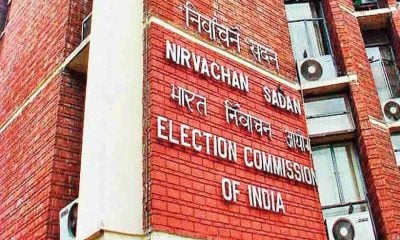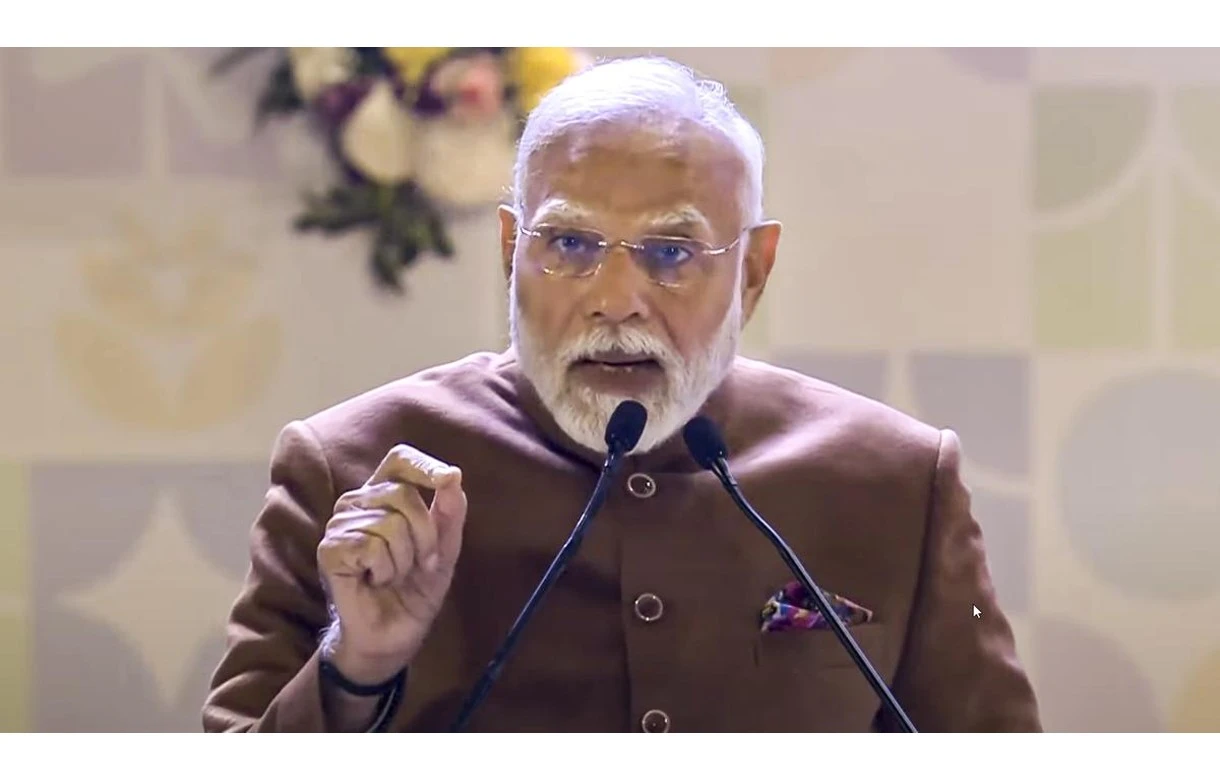[vc_row][vc_column][vc_column_text]A number of former information commissioners and RTI activists have come out strongly against the move by the central government to amend the Right to Information Act, 2005, saying it will reduce the law to “another toothless tiger”.
The move allows the government to fix the term of service of the information commissioners and their salaries.
The RTI Act, enacted in 2005, defined both the time of service and the status of information commissioners. It lays down that information commissioners — both state and central — will have a tenure of five years or till they attain the age of 65 years (whichever comes first).
The salaries of the central information commissioners were kept equivalent to that of the chief election commission while those of state information commissioners equivalent to the chief secretary of the state.
The Right to Information (Amendment) Bill, 2019, which was introduced in the Lok Sabha on Friday, July 20, does away with both the tenure and salary structure of information commissioners and gives the central government carte blanche in deciding both.
Once appointed, information commissioners, by virtue of the fixed tenure, could not be removed by the Governor or the President except in cases of moral turpitude or insanity. RTI activists said by removing this clause, information commissioners will be left to the whims and fancies of the government.
The amendments are being viewed as implying that, in effect, the terms of appointment, salaries and tenures of the Chief Information Commissioners and Information Commissioners can be decided on a case-to-case basis by the government.
The Opposition has argued that this will take away the independence of the RTI authorities. Congress Leader in Lok Sabha Adhir Ranjan Chowdhury said the Bill is a “threat to the independence” of the Central Information Commissioner, while Shashi Tharoor called it an “RTI elimination Bill” that removes the organisation’s independence. Members of the Trinamool Congress, DMK and AIMIM, too, protested.
The government had tried to introduce the amendments last year too, but had to withdraw the Bill because of protests from the Opposition.
The Bill amends Sections 13 and 16 of the Right to Information (RTI) Act, 2005 which deal with the term and salaries of the Chief Information Commissioner and Information Commissioners at the centre and state level respectively. The Sections originally set their term at five years (or until the age of 65, whichever is earlier). The amendment proposes that the appointment will be “for such term as may be prescribed by the Central Government”.
Again, the original Sections stated that salaries, allowances and other terms of service of “the Chief Information Commissioner shall be the same as that of the Chief Election Commissioner”, and those of an Information Commissioner “shall be the same as that of an Election Commissioner”. The amendment proposes that the salaries, allowances and other terms of service of the Chief Information Commissioner and the Information Commissioners “shall be such as may be prescribed by the Central Government”.
The statement of objects of the amendment Bill says “the mandate of Election Commission of India and Central and State Information Commissions are different. Hence, their status and service conditions need to be rationalised accordingly”. While introducing the Amendment Bill, Minister of State in the PMO Jitendra Singh said, “Probably, the then government of the day, in a hurry to pass the RTI Act, 2005, overlooked a lot of things. The Central Information Commissioner has been given the status of a Supreme Court judge but his judgments can be challenged in the High Courts. How can that exist? Besides, the RTI Act did not give the government rule-making powers. We are merely correcting these through the amendment.”
The Bill leading to the original Act had been discussed by the Parliamentary Committee on Personnel, Public Grievances, Law and Justice, which included then BJP members Ram Nath Kovind (now the President), Balavant Apte, and Ram Jethmalani. Originally, the salaries of the Chief Information Commissioners were proposed to be equivalent to those of Secretaries to the Government of India, and the salaries of the Information Commissioners were to be equivalent to those of Additional Secretaries or Joint Secretaries to the Union government. The Parliamentary Committee headed by E M S Natchiappan submitted its report in 2005 and said, “The Committee feels that… it will be desirable to confer on the Information Commissioner (the designation was later renamed CIC) and Deputy Information Commissioners (now ICs), status of the Chief Election Commissioner and the Election Commissioner, respectively. The Committee, accordingly, recommends insertion of a suitable provision in the clause to this effect.”
While introducing the Bill, the government had cited that as orders of the information commissioners are open for challenge in high courts, equivalence of the information commissioners to the judges of high court was not right.
RTI activist Vijay Kumbhar dismissed the arguments of the central government as weak. A report in The Indian Express quoted him as saying: “Back in 2018, the salary structures of 19 quasi judicial administrative commissions were brought on par with that of Supreme Court and High Court judges. Interestingly, salaries of the judges were hiked six months after that. Why were the information commissioners left out then?”
The orders of the various quasi judicial bodies, Kumbhar said, could be challenged in lower courts. “So, the government’s argument about the applicability of the salary structure of high courts to information commissioners does not stand,” he added.
RTI activists are planning to legally challenge the move.
Pune-based activist Qaneez Sukhrani slammed the move as another attempt by the government to control the RTI Act. “This first amendment will give the government further chance to amend the law,” she said.
Former CIC Shailesh Gandhi told The Hindu that the NDA government has offered no plausible reason as to why it is making these changes nor was there any pre-legislative consultation.
“The proposed changes to the RTI Act were introduced in complete secrecy without any public disclosure and consultation on draft legislations. The implication is the Centre wants to control the CIC and downgrade the function of State information commissioners (SICs), and that appointments of information commissioners are to be henceforth dictated by political patronage,” Gandhi said.
He said if the amendments were effected, it would weaken democratic institutions as the RTI Act thus far has proved to be the strongest and most effective tool ordinary citizens possess to hold accountable the powers that be.
In a release rejecting the amendments introduced by the NDA government, the National Campaign for Peoples’ Right to Information (NCPRI) demanded that they be withdrawn with immediate effect. “The contents of the draft amendments were not known to MPs, citizens, and the media till the Bill was circulated to members of the Lok Sabha on the eve of its introduction. The Bill seeks to amend the RTI Act to empower the Centre to unilaterally decide the tenure, salary, allowances and other terms of service of information commissioners at the Centre and in the States. The NDA government has done so by wilfully misrepresenting an amendment to a basic feature of the law, as a function of rule-making,” the release said.
It further said the RTI Act provides for a fixed tenure of five years for information commissioners (subject to the age limit of 65 years). “The salaries, allowances, and other terms of service of the chief of the Central Information Commission are the same as that of the Chief Election Commissioner. This is part of the basic structure of the existing law and therefore any amendment to these provisions undermines the basic structure of the RTI.”
Accusing the Central government of usurping the power to decide the tenure, salaries and allowances of SICs, it said the move indicates “the current government’s centralised, and undemocratic decision making.”
The NCPRI accused the Centre of instead sidelining a “wide array of pressing issues” that require the urgent government attention to ensure effective implementation of the RTI Act. These include making time-bound and transparent appointments to fill vacancies in information commissions, addressing the issue of attacks on RTI activists, implementing the Whistle Blowers Protection Act, and addressing the lack of transparency in electoral funding.[/vc_column_text][/vc_column][/vc_row]


 Latest world news24 hours ago
Latest world news24 hours ago
 India News20 hours ago
India News20 hours ago
 India News15 hours ago
India News15 hours ago
 India News26 mins ago
India News26 mins ago
 India News36 mins ago
India News36 mins ago
 Latest world news9 mins ago
Latest world news9 mins ago








